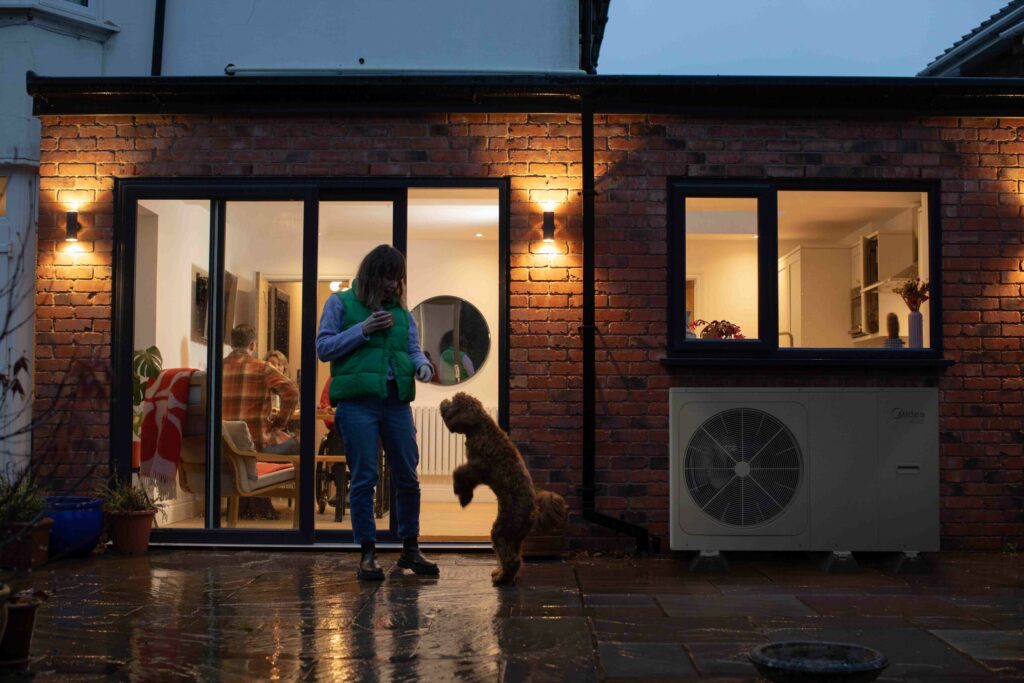
Heat pumps are rapidly gaining recognition for their energy efficiency. However, there seems to be a plethora of misconceptions surrounding their use. As more and more homeowners contemplate switching from traditional gas or oil to heat pumps, we decided to get up close with the facts.
Max Waddingham, Operations Director at Good Energy, is an expert in heat pump technology and an owner of a heat pump himself. To dispel common myths about heat pumps, Waddingham answers the top 10 most frequently asked questions about this energy-efficient technology.
1. Are Heat Pumps More Expensive to Run Than Oil or Gas?
“My running costs are cheaper than my old oil or gas boiler,” states Waddingham. He explains that people often confuse the cost of the heat pump with the cost of other home upgrades, such as insulation or pipework. However, when installed properly, heat pumps can reduce your energy bills. “They can certainly save you money compared to running a gas boiler,” he adds.
2. Do I Need to Insulate My House Before Installing a Heat Pump?
Waddingham recommends insulating your house to maximize energy efficiency, irrespective of whether you have a boiler or an electric heater. However, it’s not a prerequisite for installing a heat pump. “If your house can be heated with a boiler, it can be heated with a heat pump,” he assures.
3. Are Heat Pumps Less Efficient Than Other Heating Systems?
Far from it. Waddingham explains that heat pumps have an efficiency rate of over 100%, making them the most efficient home heating method. Heat pumps utilize electricity to unlock heat that already exists in the environment. “An air-source heat pump, for example, can be about 400% efficient. It gives you back four times the energy you put into it,” he says.
4. Do Heat Pumps Make a Lot of Noise?
Heat pumps are no noisier than a typical fridge. To illustrate this, Waddingham recounts a time when he had a friend over who didn’t realize the heat pump was running while standing next to it. “The air-source heat pumps installed by Good Energy produce a maximum noise level of 45 decibels, which is comparable to a typical fridge,” he says.
5. Is Heat Pump Technology New and Untested?
Heat pump technology is not new. In fact, it predates the gas boiler. Waddingham points out that if you have a refrigerator, you already have a heat pump in your home. “It’s the same technology,” he says. “The only difference is that a fridge pumps heat from your food to the back of the fridge.”
6. Can a Heat Pump Heat My House in the Winter?
Yes, it can. Heat pumps work using specialist liquids called refrigerants, which produce heat at temperatures well below freezing. They’re even used in homes as far north as the Arctic Circle!
7. Do I Need Planning Permission to Install a Heat Pump?
In most cases, you won’t need to apply for planning permission to install a heat pump. You might need permission if the unit is bigger than 0.6 cubic meters, if you already have a heat pump, or if it’s going to be within a meter of the property boundary. Certified installers can provide guidance on the process.
8. Can a Heat Pump Work with My Current Central Heating System?
Most of the time, heat pumps can work with your existing heating system without the need for major pipe upgrades. “If you’ve got a standard heating system, you’ll find you have to do very little in the way of pipe upgrades to your house,” Waddingham assures.
9. Are There Government Grants Available for Installing Heat Pumps?
The UK government currently offers grants of £7,500 to properties upgrading to an air source or ground source heat pump. You’re also entitled to claim the grant if you’re building your own property.
10. Do Heat Pumps Take Up More Space Than a Gas Boiler?
While heat pumps do require some outdoor space, it’s usually not more than what a bike leaning against a wall would occupy. “The key thing with a heat pump is that it goes outside. So, while it might take up some space, it’s not in your actual house. Generally speaking, you get a cupboard back, or wherever your boiler is,” Waddingham explains.
Heat pumps are here to stay and they offer a wealth of advantages in terms of energy efficiency. Don’t let misinformation keep you from reaping their benefits. If you’re considering the switch, ensure you get advice from a certified installer to guarantee you’re making an informed decision.





